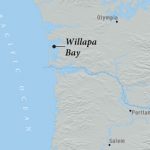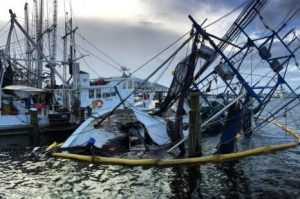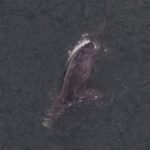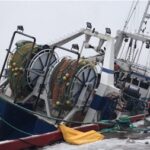Daily Archives: April 8, 2017
D.B. Pleschner: Study: No correlation between forage fish, predator populations
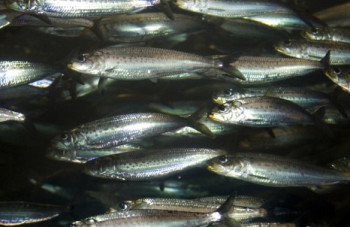 On April 9-10, the Pacific Fishery Management Council is meeting in Sacramento to deliberate on anchovy management and decide on 2017 harvest limits for sardine, two prominent west coast forage fish. Extreme environmental groups like Oceana and Pew have plastered social media with allegations that the anchovy population has crashed, sardines are being overfished and fisheries should be curtailed, despite ample evidence to the contrary. Beyond multiple lines of recent evidence that both sardines and anchovy populations are increasing in the ocean, a new study published this week in the journal Fisheries Research finds that the abundance of these and other forage fish species is driven primarily by environmental cycles with little impact from fishing, and well-managed fisheries have a negligible impact on predators — such as larger fish, sea lions and seabirds. This finding flies directly in the face of previous assumptions prominent in a 2012 study commissioned by the Lenfest Ocean Program, funded by the Pew Charitable Trusts, heirs of Sun Oil Company. The Lenfest study concluded that forage fish are twice as valuable when left in the water to be eaten by predators and recommended slashing forage fishery catch rates by 50 to 80 percent. click here to continue reading the article 20:39
On April 9-10, the Pacific Fishery Management Council is meeting in Sacramento to deliberate on anchovy management and decide on 2017 harvest limits for sardine, two prominent west coast forage fish. Extreme environmental groups like Oceana and Pew have plastered social media with allegations that the anchovy population has crashed, sardines are being overfished and fisheries should be curtailed, despite ample evidence to the contrary. Beyond multiple lines of recent evidence that both sardines and anchovy populations are increasing in the ocean, a new study published this week in the journal Fisheries Research finds that the abundance of these and other forage fish species is driven primarily by environmental cycles with little impact from fishing, and well-managed fisheries have a negligible impact on predators — such as larger fish, sea lions and seabirds. This finding flies directly in the face of previous assumptions prominent in a 2012 study commissioned by the Lenfest Ocean Program, funded by the Pew Charitable Trusts, heirs of Sun Oil Company. The Lenfest study concluded that forage fish are twice as valuable when left in the water to be eaten by predators and recommended slashing forage fishery catch rates by 50 to 80 percent. click here to continue reading the article 20:39
Lobsters at core of a tasty China-US story
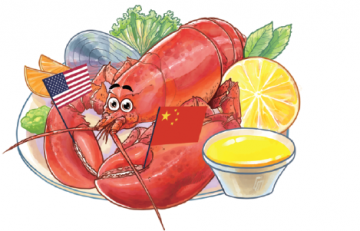 Lobsters caught by fishermen on Little Cranberry Island in Maine in the United States in the morning can be had for dinner by Chinese families the next evening. The lobster and shrimp farming industry in Maine, which despite its history of more 150 years faced an uncertain future because of overcapacity, has been revitalized by Chinese consumers’ strong demand. That China-US interdependence in trade is based on win-win cooperation and mutual benefit is evident in the “lobster story”. The volume of China-US trade was less than $13 million in 1972, the year when bilateral ties started thawing thanks to then US president Richard Nixon’s visit to China. Last year, the bilateral trade volume reached nearly $520 billion. In 1979, when the two countries officially established diplomatic relations, Chinese people’s impression of US products was largely limited to a “foamy drink called Coca-Cola”. Click here to read the article 18:20
Lobsters caught by fishermen on Little Cranberry Island in Maine in the United States in the morning can be had for dinner by Chinese families the next evening. The lobster and shrimp farming industry in Maine, which despite its history of more 150 years faced an uncertain future because of overcapacity, has been revitalized by Chinese consumers’ strong demand. That China-US interdependence in trade is based on win-win cooperation and mutual benefit is evident in the “lobster story”. The volume of China-US trade was less than $13 million in 1972, the year when bilateral ties started thawing thanks to then US president Richard Nixon’s visit to China. Last year, the bilateral trade volume reached nearly $520 billion. In 1979, when the two countries officially established diplomatic relations, Chinese people’s impression of US products was largely limited to a “foamy drink called Coca-Cola”. Click here to read the article 18:20
Striper Poaching Season Begins in Maryland!
 On April 5, 2017, Maryland DNR reported that officers had charged nine men with possessing 87 striped bass from the waters of Dorchester County. On Saturday, an officer watched as four men caught striped bass and hid them in storm drains on Fishing Creek Bridge. The officer recovered 14 fish. Charged with possessing striped bass in a closed season were: Juan Manuel Bravo, 34, of Hyattsville; Emerson DeJesus Vargas Campos, 26, of Riverdale; Jairo Dario Ramierez, 22, of Upper Marlboro; and Elmer Antonio Castillo Araniva, 23, of Upper Marlboro. The next night, officers watched as five men from Prince George’s County caught fish and placed them in the trunk of an SUV. When officers stopped the vehicle and searched it, they found 73 striped bass in a duffel bag. There’s more! Lots more! continue reading the story here 17:03
On April 5, 2017, Maryland DNR reported that officers had charged nine men with possessing 87 striped bass from the waters of Dorchester County. On Saturday, an officer watched as four men caught striped bass and hid them in storm drains on Fishing Creek Bridge. The officer recovered 14 fish. Charged with possessing striped bass in a closed season were: Juan Manuel Bravo, 34, of Hyattsville; Emerson DeJesus Vargas Campos, 26, of Riverdale; Jairo Dario Ramierez, 22, of Upper Marlboro; and Elmer Antonio Castillo Araniva, 23, of Upper Marlboro. The next night, officers watched as five men from Prince George’s County caught fish and placed them in the trunk of an SUV. When officers stopped the vehicle and searched it, they found 73 striped bass in a duffel bag. There’s more! Lots more! continue reading the story here 17:03
North Pacific council takes first step in creating salmon fishery management plan
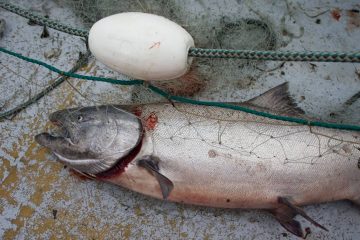 A lot of new faces are coming to the table at the North Pacific Fishery Management Council, and not a lot of them are happy about it. Fishermen who had never previously been involved with the council now have to show up to have a hand in how their fisheries will be incorporated into a federal fishery management plan. The council, which regulates federal fisheries off the coast of Alaska, on Thursday started in on the topic of the salmon plan for Cook Inlet, part of the Alaska Peninsula and part of Prince William Sound near Cordova. After removing the three areas from the plan by amendment in 2011, effectively exempting them from federal oversight and delegating entirely to the state despite occurring partially in federal waters, the U.S. Ninth Circuit Court ruled that the move was illegal. Now, the council is having to initiate the process of revising the salmon FMP to include the net areas, which is likely to take years. click to continue reading the article here 12:12
A lot of new faces are coming to the table at the North Pacific Fishery Management Council, and not a lot of them are happy about it. Fishermen who had never previously been involved with the council now have to show up to have a hand in how their fisheries will be incorporated into a federal fishery management plan. The council, which regulates federal fisheries off the coast of Alaska, on Thursday started in on the topic of the salmon plan for Cook Inlet, part of the Alaska Peninsula and part of Prince William Sound near Cordova. After removing the three areas from the plan by amendment in 2011, effectively exempting them from federal oversight and delegating entirely to the state despite occurring partially in federal waters, the U.S. Ninth Circuit Court ruled that the move was illegal. Now, the council is having to initiate the process of revising the salmon FMP to include the net areas, which is likely to take years. click to continue reading the article here 12:12
Wake Up, Fishermen! Proposed closure of coral grounds in Gulf of Maine has lobster industry on edge
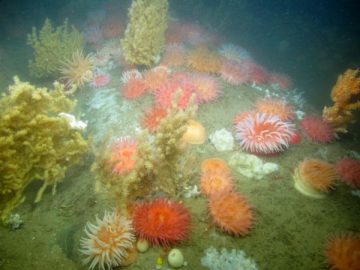 Over the past 10 years, the issue of how to protect endangered whales from getting tangled in fishing gear has been a driving factor in how lobstermen configure their gear and how much money they have to spend to comply with regulations. Now federal officials have cited the need to protect deep-sea corals in a proposal to close some areas to fishing — a proposal that, according to lobstermen, could pose a serious threat to how they ply their trade. “The [potential] financial impact is huge,” Jim Dow, a Bass Harbor lobsterman and board member with Maine Lobstermen’s Association, said Wednesday. “You’re talking a lot of the coast that is going to be affected by it.” The discovery in 2014 of deep-sea corals in the gulf, near Mount Desert Rock and along the Outer Schoodic Ridges, has prompted the New England Fisheries Management Council to consider making those area off-limits to fishing vessels in order to protect the coral from damage. According to Maine Department of Marine Resources, fishermen from at least 15 harbors in Hancock and Washington counties could be affected by the proposed closure. click here to read the story Wake Up, Fishermen! 11:15:30
Over the past 10 years, the issue of how to protect endangered whales from getting tangled in fishing gear has been a driving factor in how lobstermen configure their gear and how much money they have to spend to comply with regulations. Now federal officials have cited the need to protect deep-sea corals in a proposal to close some areas to fishing — a proposal that, according to lobstermen, could pose a serious threat to how they ply their trade. “The [potential] financial impact is huge,” Jim Dow, a Bass Harbor lobsterman and board member with Maine Lobstermen’s Association, said Wednesday. “You’re talking a lot of the coast that is going to be affected by it.” The discovery in 2014 of deep-sea corals in the gulf, near Mount Desert Rock and along the Outer Schoodic Ridges, has prompted the New England Fisheries Management Council to consider making those area off-limits to fishing vessels in order to protect the coral from damage. According to Maine Department of Marine Resources, fishermen from at least 15 harbors in Hancock and Washington counties could be affected by the proposed closure. click here to read the story Wake Up, Fishermen! 11:15:30
Adjacency – Shrimp fishermen storm DFO building, come away with signed agreement
 The protesters, members of the Newfoundland and Labrador Independent Fish Harvesters’ Association (NLIFHA), kicked in a window at the building’s main entrance, stormed the building and wandered the halls in search of specific staff familiar with shrimp science and fisheries management. At issue was not the shrimp quota, but the principles of adjacency surrounding the fishery in Area 6, specifically the 3K region on the province’s northeast coast and 2J off Labrador. Those closest to the resource, they argue, should have first access. “In these dire circumstances, while the shrimp is in the critical zone according to DFO scientists, we’re asking that the access to this shrimp only be given to people living adjacent to the shrimp,” explained Terry Ryan, a fisherman from La Scie and spokesman for the group of about 50. “All other fleets, including boats from Quebec, be denied access until such time as our shrimp recovers out of this critical zone.” Click here to read the story 10:25
The protesters, members of the Newfoundland and Labrador Independent Fish Harvesters’ Association (NLIFHA), kicked in a window at the building’s main entrance, stormed the building and wandered the halls in search of specific staff familiar with shrimp science and fisheries management. At issue was not the shrimp quota, but the principles of adjacency surrounding the fishery in Area 6, specifically the 3K region on the province’s northeast coast and 2J off Labrador. Those closest to the resource, they argue, should have first access. “In these dire circumstances, while the shrimp is in the critical zone according to DFO scientists, we’re asking that the access to this shrimp only be given to people living adjacent to the shrimp,” explained Terry Ryan, a fisherman from La Scie and spokesman for the group of about 50. “All other fleets, including boats from Quebec, be denied access until such time as our shrimp recovers out of this critical zone.” Click here to read the story 10:25
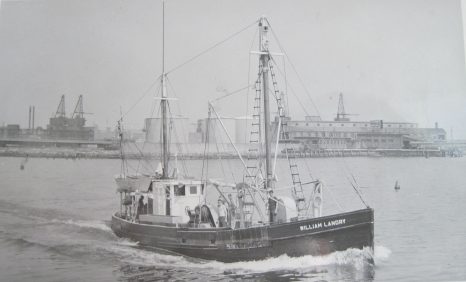
On This Day April 8,1950: Eight fishermen drown in sight of Lightship Pollock Rip
On this day in 1950, a fishing boat with eight men aboard sank with no survivors off Chatham after its crew struggled for hours to remain afloat in a howling gale. “The William Landry, a 63-foot scallop dragger out of New Bedford, was smashed to pieces by pounding seas while struggling toward a lightship stationed at Pollock Rip in Nantucket Sound,” the Associated Press reported. The Landry‘s fate became known for certain when wreckage from the boat washed ashore on Nantucket and was identified by LeRoy Anderson, brother-in-law of Capt. Arne Hansen, the Landry‘s 37-year-old skipper. The Coast Guard told the AP that the Landry vanished “all at once” around midnight after Hansen and his crew battled for hours in the fierce conditions to make their way to the lightship. When towering waves knocked the vessel’s pumps out of operation, the crew bailed with buckets and at 7 p.m. was near the lightship, the AP reported. click here to read the story More about F/V William Landry here 09:21
Two Vessels suspected of catching too many Monk fish are under investigation
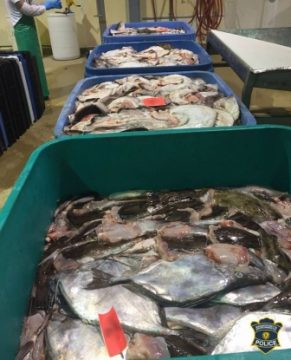 From the Massachusetts Environmental Police: On Wednesday, March 29, 2017, a Massachusetts Environmental Police Officer was on patrol in Saquatucket Harbor, an area that has recently received several fisheries complaints regarding vessels offloading catch that exceed the legal limit. While on patrol, the officer observed two vessels offloading monkfish. The Officer subsequently approached the vessel Captains and began the process of conducting an inspection of the catch offload. The inspection resulted in each vessel offloading catch over the legal limit; Vessel 1 was 1293 pounds over, Vessel 2 was 977 pounds over. The case has been turned over to the National Marine Fisheries Service for further investigation. The Massachusetts Environmental Police remain committed to providing quality and professional enforcement of conservation laws. Link 08:09
From the Massachusetts Environmental Police: On Wednesday, March 29, 2017, a Massachusetts Environmental Police Officer was on patrol in Saquatucket Harbor, an area that has recently received several fisheries complaints regarding vessels offloading catch that exceed the legal limit. While on patrol, the officer observed two vessels offloading monkfish. The Officer subsequently approached the vessel Captains and began the process of conducting an inspection of the catch offload. The inspection resulted in each vessel offloading catch over the legal limit; Vessel 1 was 1293 pounds over, Vessel 2 was 977 pounds over. The case has been turned over to the National Marine Fisheries Service for further investigation. The Massachusetts Environmental Police remain committed to providing quality and professional enforcement of conservation laws. Link 08:09



































